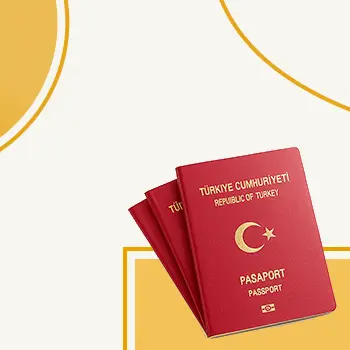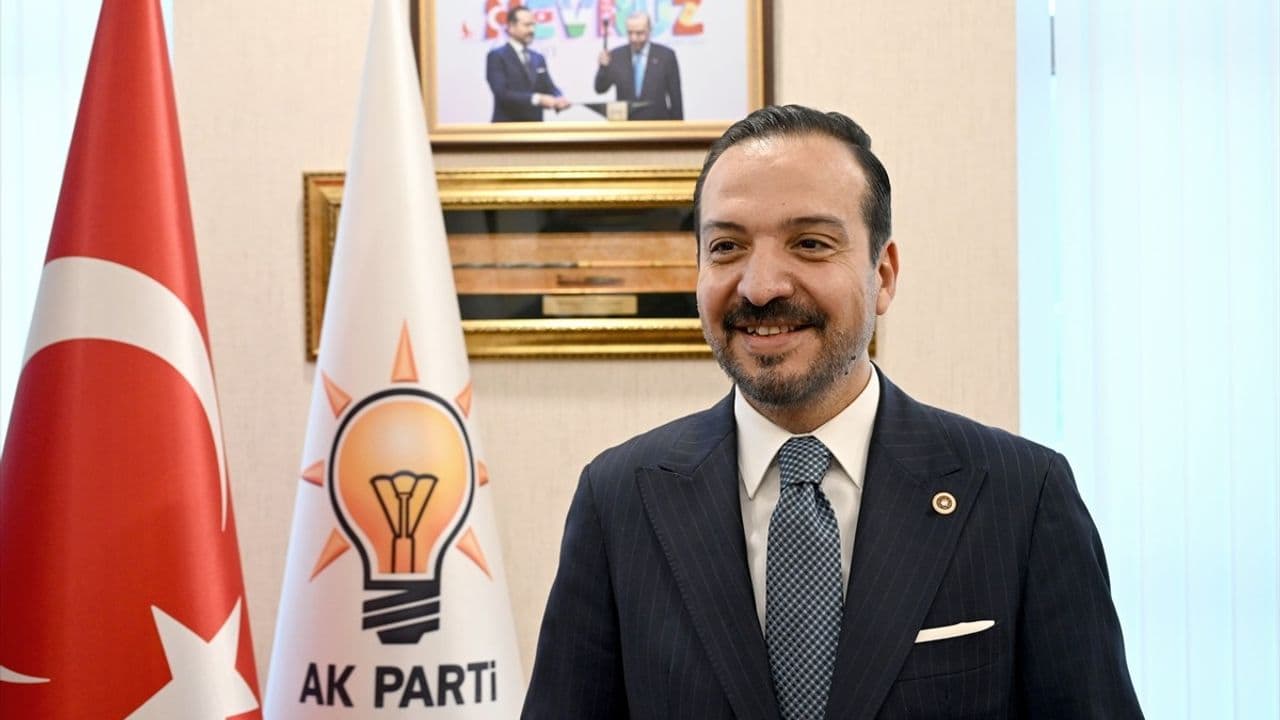
New Employment Conditions in Türkiye for Persons of Turkic Origin (Law No. 2527)
Introduction and Historical Context
Employment in Türkiye for foreigners of Turkic origin has always been regulated by special legislation, reflecting Ankara’s historical and cultural ties with the Turkic world. Until recently, the key legal document was Law No. 2527 “On the free exercise of professions and arts, and on employment in public or private institutions or workplaces by foreigners of Turkic origin in Türkiye,” adopted back in 1981.
This law, introduced during the Cold War era, aimed to facilitate the integration and employment of Turkic minorities living outside Türkiye by granting them significant advantages compared to other foreigners. In practice, it allowed them to work without a separate work permit—an important incentive for repatriation and professional mobility.
However, geopolitical changes and rising migration flows, especially from Central Asia and other regions, created the need to revise this outdated law. Against the backdrop of the growing influence of the Organization of Turkic States (OTS) and Türkiye’s “soft power” policy, a need arose to define more clearly who exactly can benefit from these privileges, in order to prevent abuse and avoid excessive competition in the domestic labor market.
What Changed on 10 October 2025
The key amendments regulating the employment of persons of Turkic origin entered into force with publication in the Official Gazette (Resmî Gazete) on 10 October 2025.
| Parameter | Before 10 October 2025 | After 10 October 2025 |
|---|---|---|
| Legal basis | Law No. 2527 and old Regulation | Presidential Decree No. 10476 of 10.10.2025 |
| Definition of “Turkic Origin” | Based on general criteria and ancestry | Determined exclusively by Presidential decision |
| Employment conditions | Relatively simple; mainly residence permit required | Ten mandatory conditions introduced (see Section 3) |
| Mechanism of implementation | Automatic right to work if criteria met | All ten conditions must be met and approved by the President |
The new regulation—Presidential Decree No. 10476—amended the Implementing Regulation of Law No. 2527. The main change is centralization of power: the authority to determine which communities are considered “of Turkic origin” (Türk soylu) and may enjoy special employment privileges now rests entirely with the President of the Republic of Türkiye [1].
Conditions and Requirements (Analysis of 10 Clauses)
The new regulation introduces ten mandatory conditions that must all be met to obtain the right to work under Law No. 2527. These requirements have significantly complicated the process and drawn criticism.
| No. | Requirement (in English) | Original text (in Turkish) | Comment and issues |
|---|---|---|---|
| 1 | Possession of a residence permit | İçişleri Bakanlığınca ikamet izni verilmiş olması. | Basic requirement. |
| 2 | Compliance with special professional laws | Mesleğe ilişkin özel kanun niteliklerinin taşınması. | Applies to regulated professions (doctors, lawyers, etc.). |
| 3 | Diploma equivalency confirmation | Diplomaların denkliğinin onaylanması. | Requires nostrification (denklik) by Turkish authorities. |
| 4 | No security risk | Güvenlik açısından sakınca bulunmaması. | Background check by security services. |
| 5 | Population registry record created | Nüfus kayıtlarının oluşturulması. | Technical registration requirement. |
| 6 | Membership in a professional organization | Meslek kuruluşuna kayıtlı olunması. | Needed for professions like engineering, law, etc. |
| 7 | Recognition of document equivalency | Belgelerin denkliğinin kabul edilmesi. | May apply to certificates or work experience. |
| 8 | Belonging to a community designated by the President | Cumhurbaşkanı kararıyla tespit edilen topluluktan olunması. | Depends on Presidential decision (not yet issued). |
| 9 | Inability to work in home country for reasons beyond control | Kendi ülkesinde elinde olmayan sebeplerle mesleğini icra edememek. | Highly subjective; requires proof of political or other constraints. |
| 10 | Ethnic and cultural difference from the majority population | Vatandaşı olduğu ülkenin kâhir ekseriyetinden farklı etnik ve kültürel kimliğe sahip olmak. | Excludes citizens of Turkic states; targets minorities. |
Who Can Benefit and Who It Applies To
According to official clarifications, the law targets not citizens of OTS member states but Turkic minorities residing in other countries.
Target groups:
- Turkic minorities without their own state: Uyghurs (China), Ahıska Turks, Crimean Tatars (Ukraine), and communities in the Balkans and Middle East.
- Persons unable to work in their home country for political or uncontrollable reasons (clause 9).
Citizens of independent Turkic states (Azerbaijan, Kazakhstan, Kyrgyzstan, Uzbekistan, Turkmenistan) are effectively excluded under clause 10, since they are not an ethnic minority in their countries. For them, general rules under Law No. 6735 “On the International Workforce” continue to apply [3].
Statistics:
- About 358,000 people of Turkic origin hold residence permits in Türkiye.
- Roughly 89,000 already have official work permits [4].
Motives and Political Context
- Soft Power Tool: The law strengthens ties with Turkic communities, emphasizing Türkiye’s role as their protector and homeland.
- Labor Market Protection: Clause 10 controls migration flows and prevents competition with local workers.
- Humanitarian and Political Support: It creates a legal mechanism to assist Turkic minorities facing discrimination.
Deputy Chair Kürşad Zorlu noted that this is “an update of legislation demonstrating the Republic of Türkiye’s resolve to assume historical responsibility for our compatriots” [3].
Risks, Criticism and Gaps
- Unclear origin criteria: Without a Presidential decision, the law is not operational.
- Proof difficulties: Clauses 9 and 10 are subjective, opening room for corruption and abuse.
- Centralization risk: Full authority granted to the President politicizes implementation.
- Discrimination risk: Potential tension between Turkic foreigners and local workers.
Comparison and Consequences
| Aspect | Before 10.10.2025 | After 10.10.2025 |
|---|---|---|
| Right to work | Relatively easy, almost automatic with residence permit | Depends on meeting 10 strict conditions |
| Target group | All persons of Turkic origin | Only Turkic minorities |
| Political authority | Decentralized (ministerial) | Fully centralized at Presidential level |
| Economic impact | Encouraged inflow of qualified labor | Reduced mobility and migration flows |
Conclusions and Outlook
The new regulation of 10 October 2025 is a double-edged measure. On one hand, it seeks to streamline migration policy and support vulnerable Turkic minorities. On the other, it introduces vague and rigid criteria that make employment procedures complex and non-transparent.
Key points to watch:
- Publication of the Presidential Decision defining eligible communities is crucial.
- Clarification of clauses 9 and 10 is essential for practical implementation.
- The number of beneficiaries is expected to remain limited; the law will serve humanitarian rather than broad migration purposes.
Frequently Asked Questions
Citizens of the independent Turkic states of Azerbaijan, Kazakhstan, Kyrgyzstan, Uzbekistan and Turkmenistan are not subject to the Law. No:2527. They are subject to the general rules of employment of foreign citizens according to the Law. No.6735 “On the International Labor force”.
Experts note that the law contains vague wording, especially in paragraphs 9 and 10, which creates a risk of corruption. Politicization of the process is also possible, since the President determines the circle of persons recognized as being of Turkic origin. This may cause difficulties in application and the risk of discrimination in the selection of candidates.
Ten conditions must be met: a residence permit, proof of qualifications and nostrification of a diploma, absence of a threat to security, registration in accounting and professional registers, recognition of documents and seniority, membership in an ethnic community designated by the President, and proof of inability to work in a profession in their country of residence.
The changes were made by the decision of the President. No:10476. Now the right to work is granted only if ten conditions are met. The definition of “Turkic origin” has been delegated to the Turkish President, and the automatic right to work has been abolished. The purpose of the amendments is to strengthen control and eliminate abuse of the status of “Turkic origin.”
Under the new terms, which entered into force on October 10, 2025, the law applies to Turkic minorities living outside Turkey and not having their own state, for example, Uighurs, Crimean Tatars, Turks, and others. They can work in Turkey if they cannot practice their profession in their country of residence or belong to a cultural and ethnic minority.






















